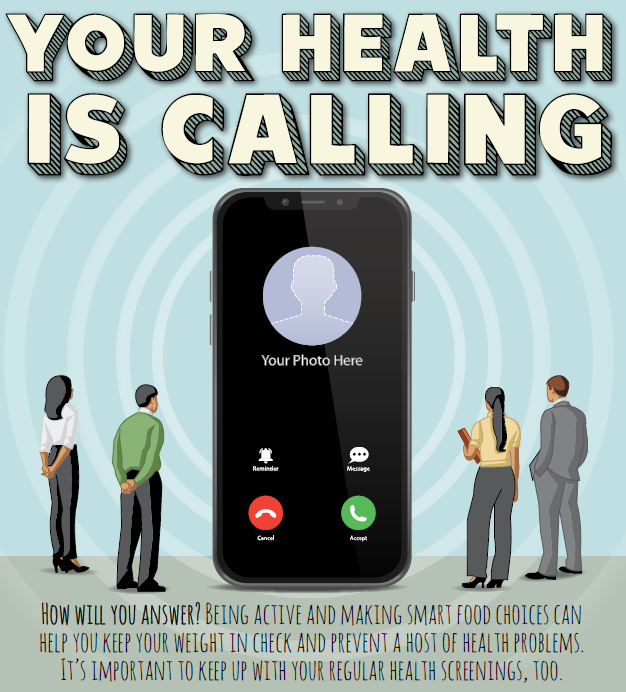Live Well
Know Your Numbers

There are a few numbers you know by heart: your birthday, your phone number and maybe even your childhood street address. But do you know your exact weight and current body mass index? These important numbers can reveal a great deal about your overall health.
Weight
Keeping your weight at a healthy level will prevent a host of health problems. Obesity is linked to poor mental health outcomes and a reduced quality of life. It will put you at greater risk for many serious conditions:
• High blood pressure
• Type 2 diabetes
• Coronary heart disease
• Stroke
• Sleep apnea
• Many types of cancers
• Body pain and difficulty with physical functioning
Body Mass Index
Body mass index (BMI) is a measure of body fat. There are many easy-to-use BMI calculators online, such as this example from the Centers for Disease Control and Prevention.*
Here’s how to interpret your BMI:
• Below 18.5: underweight
• 18.5 – 24.9: healthy weight
• 25 – 29.9: overweight
• 30 and above: obese
A high BMI can be a warning sign for potential health problems. It’s important to keep track of this number and make adjustments if needed. Simple changes to your diet and exercise habits can make a powerful difference.
Physical Activity
Health experts recommend at least 150 minutes a week of moderate-intensity activity. They define moderate-intensity activity as any exercise that gets your heart rate up and causes you to break a sweat but allows you to carry on a conversation.
Here are some examples of moderate-intensity activities:
• Brisk walk
• Dancing
• Gardening
• Heavy housecleaning
• Mowing the lawn
Experts also recommend two days a week of muscle-strengthening activity, such as weight training.
Eating Right
A healthy diet includes fruits and vegetables, whole grains, lean protein, and low-fat dairy products. Eat oranges, tomatoes, fresh herbs and dark, leafy greens rich in vitamins and minerals. Choose high-protein foods, such as seafood, poultry, beans, nuts and seeds. Avoid saturated fats, cholesterol, salt, trans fats and added sugars.
Many people find success through daily food tracking. You can write down what you eat or download a calorie tracking app for your phone. Your recommended daily calorie intake is based on your age, weight, height, gender and activity levels. There are a variety of online calculators, like this one from the Mayo Clinic,* that can tell you how many calories you should eat each day.
Regular Health Screenings
Along with controlling your weight through diet and exercise, it’s important to keep up with your regular health screenings. Schedule an annual physical to talk with your doctor about your wellness goals and any concerns you may have. Your physician will check your blood pressure, cholesterol and blood glucose levels and make sure you’re caught up on your vaccinations.
You may also need to think about other types of health screenings. An early diagnosis of a serious condition, such as cancer, can lead to improved treatment outcomes. You may be due for a colon cancer screening or a mammogram. Talk to your doctor about which health screenings are right for you.
*The Centers for Disease Control and Prevention and the Mayo Clinic are independent organizations that offer health information you may find helpful.
